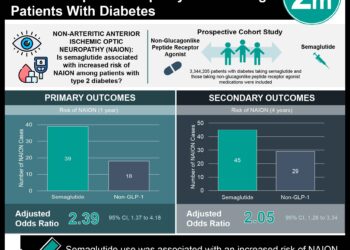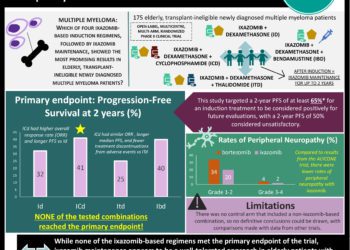Zika virus exposure detected in patients presenting with new neuroinflammatory conditions
1. In this prospective cohort study from Brazil, most patients admitted with new parainfectious/neuroinflammatory conditions including Guillain-Barré syndrome (GBS), meningoencephalitis, or transverse myelitis had molecular or serologic evidence of recent Zika Virus (ZIKV) infection.
2. Rates of admission for neuroinflammatory conditions were higher in Brazil during the study period than for a similar time period prior to the Brazil ZIKV outbreak.
Evidence Rating Level: 2 (Good)
Study Rundown: Zika virus is a flavivirus spread by the Aedes mosquito that from 2015 to 2016 has been estimated to have infected 500 000 to 1.5 million people in Brazil as well as other Latin American countries. Case series have suggested a link between ZIKV infection and neurologic complications including GBS, menigoencephalitis, and transverse myelitis. This study sought to prospectively evaluate the prevalence of ZIKV infection in patients with new presentations of neuroinflammatory conditions. Of the 40 patients included in the study, 88% had evidence of acute ZIKV infection, 91% of whom experienced a clinical viral prodrome prior to development of neurologic symptoms. Rates of neuroinflammatory disorder admission were high during the study period than a comparable period prior to the ZIKV outbreak.
The study highlights a growing concern with regards to long-term morbidity from ZIKV infection. The neurologic complications should remain an area of ongoing study and surveillance going forward with any further outbreaks. The main strengths of the study include the standardized diagnostic criteria for the conditions under study, and the use of both CSF and serum testing. The main limitations of the study included increased referral bias due to awareness during times of epidemic, use of data from a single academic center, and the possibility of cross-reactivity with other flavivirus-directed antibodies.
Click to read the study, published in JAMA Neurology
Relevant Reading: Guillain-Barré Syndrome Associated with Zika Virus Infection in Martinique in 2016: A Prospective Study
In-Depth [prospective cohort]: This study was a prospective, observational cohort study of patients admitted to Antonio Pedro University Hospital in Rio de Janeiro, Brazil from December 5, 2015 to May 10, 2016. Consecutive patients were included if they had a confirmed diagnosis of Guillain-Barre Syndrome (GBS) (Brighton criteria level 1), transverse myelitis, encephalitis, or chronic inflammatory demyelinating polyneuropathy (CIDP). Patients were excluded if they did not consent or were lost to follow up. ZIKV infection was determined using blood and cerebrospinal fluid testing with reverse-transcriptase PCR for ZIVR RNA, and a ZIKV IgM antibody assay.
A total of 40 patients were included: 29 patients were diagnosed with GBS, 7 with encephalitis, 3 with transverse myelitis, and 1 with CIDP. Evidence of ZIKV infection was found in 35 (88%) patients, 32 of whom had reported symptoms consistent with viral prodome (most commonly fever and rash) prior to onset of neurologic symptoms. Compared to a period from December 2013 to May 2014 (prior to ZIKV outbreak), rates of admission for neuroinflammatory conditions were 4-fold higher during the study period.
Image: PD
©2017 2 Minute Medicine, Inc. All rights reserved. No works may be reproduced without expressed written consent from 2 Minute Medicine, Inc. Inquire about licensing here. No article should be construed as medical advice and is not intended as such by the authors or by 2 Minute Medicine, Inc.







